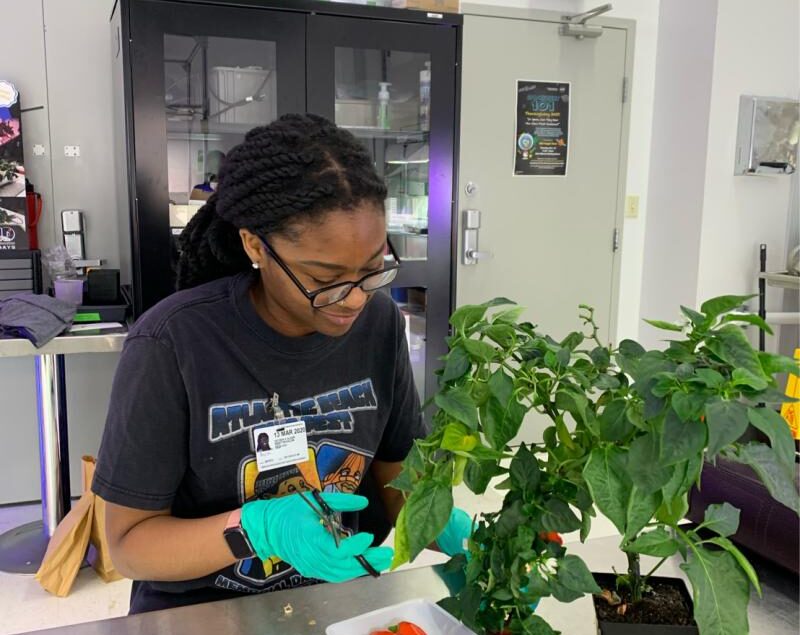Meet The HBCU Working To Grow Plants On Mars

Winston-Salem State University (WSSU) is the first HBCU to embark on new research programs in partnership with NASA.
WSSU’s Astrobotany Lab has signed a four-year agreement with NASA to research food development with a team of aspiring scientists.
The lab which is filled with all the materials needed to grow plants, fruits, and vegetables, uses synthetic dirt to figure out how to grow food in Mars.
The program is led by Professor Dr. Rafael Loueiro leads and aims to allow students to see the fascinating world of plants as well as the study of plants in space. The initiative also aims to give undergraduates opportunities to shadow scientists and researchers at the Kennedy Space Centre in Cape Town.
Loueiro has long been fighting to have HBCU students involved in astrobotany. Prior to joining the university Loureiro suggested a potential partnership with NASA, and after receiving full liberty from WSSU, he was able to bring his idea to life.
Since the program’s launch three years ago, four astrobotany students have graduated and there are currently five students on the course including three women and two men.
“Botany is usually old guys sitting in chairs and classifying plants – I want my students to have this notion that they serve and serve humankind in some sort of way that it’s going to be there forever,” said Loueiro in an interview with WXII12.
The university is currently in a four-year partnership with NASA and aims to encourage further research and planting as the time goes on. Additionally, students are able to disclose their results with NASA themselves but due to confidentiality issues, they have to sign a NDA after being accepted in the program.
Not only has the team grown peppers, tomatoes, and cucumbers – they have also transported seeds to the International Space Station to help with further research and planting. The team regularly presents their findings to NASA.
“An HBCU is doing research for NASA, and I really want people to know that and some people many not think that we can – the fact is that we can, and it was done we’re proud of ourselves,” Loueiro added.



